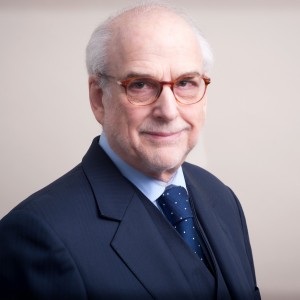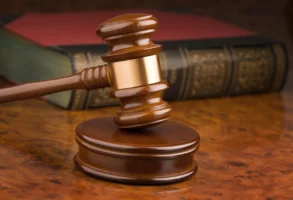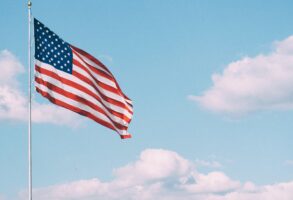In person, Bruce dressed—always elegantly—in the tweedy manner of the bygone professoriate. He was courtly, soft-spoken, and quietly witty. His laugh rumbled from great wellsprings of merriment that allowed him to look into the yawning abyss of modern American culture and not lose heart. We can think of no better exemplar in scholarship, government, or friendship.
January 10, 2018
 Scholars and staff of the Ethics and Public Policy Center mourn the sudden death on Monday of Bruce Cole, an EPPC Senior Fellow since 2012. We extend our deepest condolences to his beloved wife Doreen and to his family.
Scholars and staff of the Ethics and Public Policy Center mourn the sudden death on Monday of Bruce Cole, an EPPC Senior Fellow since 2012. We extend our deepest condolences to his beloved wife Doreen and to his family.
Mr. Cole, 79, was chairman of the National Endowment for the Humanities from 2001 to 2009. Before chairing NEH, he was Distinguished Professor of Art History and Professor of Comparative Literature at Indiana University in Bloomington. In 2008, President George W. Bush awarded Mr. Cole the Presidential Citizens Medal “for his work to strengthen our national memory and ensure that our country’s heritage is passed on to future generations.” (Video of the ceremony may be viewed here, with Mr. Cole’s remarks beginning at the 8:00 mark.)
Mr. Cole published fourteen books and numerous articles. His fifteenth book, Art from the Swamp, will be published later this year by Encounter Books.
“Bruce was deeply devoted to the good and the beautiful in Western art and to the values and traditions that the best of Western art embodies,” said EPPC President Ed Whelan. “Bruce drew on his rich learning and his ardent love of this country to work to build a culture that elevates and instructs. He was a wonderful colleague, and we will miss him terribly.”
In a tribute on National Review Online, EPPC Hertog Fellow Yuval Levin remembered Mr. Cole as “a distinguished humanist, a scholar of Western art and literature, and a defender of liberal education,” and “a gentle and deeply decent man.”
EPPC Distinguished Senior Fellow George Weigel said, “Bruce Cole was an eminently civilized man who brought a wealth of knowledge and wisdom to an often-uncivil and occasionally barbaric city, Washington D.C. The finest memorial that could be imagined for him would be a root and branch reform of the National Endowment for the Humanities, which he led with distinction but which has returned to the politically correct silliness (and worse) that he sought to replace with scholarly seriousness and intellectual integrity. Requiescat in pace.”
“Bruce Cole wore his impressive learning lightly, but was a role model for effectively advocating excellence in the humanities,” said EPPC Lehrman Institute Fellow in Economics John D. Mueller.
***
Other colleagues and friends of Mr. Cole are also offering tributes in his memory. These will be collected below as they appear.
Here is the Washington Post‘s obituary for Mr. Cole.
Indiana University President Michael A. McRobbie hailed Mr. Cole as “one of our university’s most renowned scholars and public servants, who achieved great distinction both within his field of art history and in the broader arts community …. Bruce devoted his life and career to these ideals and, hence, his will be a lasting legacy within the field of humanities and for all of us who will carry on his work to preserve our nation’s cultural heritage.”
“NEH Chairman Bruce Cole was deeply respected as a prolific and accomplished art historian, an esteemed professor, and a discerning cultural leader. As the longest-serving chairman, he dedicated himself to upholding the most significant works in the humanities, especially those that illuminate American culture and values,” said NEH Senior Deputy Chairman Jon Parrish Peede. “He was an unflinching defender of traditional humanities scholarship while embracing groundbreaking developments, such as the then-nascent field of digital humanities. I value my interactions with Bruce regarding cultural policy during the Bush administration, and I am honored to serve with remarkable staff members whom he had the wisdom to hire during his tenure.”
U.S. Senator Mike Lee said of Bruce:
[On Monday], our republic lost a devoted friend.
Bruce Cole dedicated his life to forming responsible and patriotic American citizens. Dr. Cole was the longest-serving chairman of the National Endowment of the Humanities, who served in that role from 2001 to 2009. He was a distinguished scholar of Renaissance art and a recipient of the Presidential Citizens Medal.
Dr. Cole believed in the power of civic education to unify Americans even in an age of doubt and division. At NEH he oversaw ‘We the People,’ an initiative to encourage all Americans to study the history and culture of their country. Later he helped launch Philadelphia’s inspiring Museum of the American Revolution, which tells the incredible story of how our nation was forged in war and spirit.
Dr. Cole also was a tireless promoter of beauty in the public square. He was a prominent critic of the dull and ugly fads that plague too many of our public spaces.Mr. Cole wanted Americans to love their surroundings as much as their country. Moreover, he wanted every American to embrace our shared cultural inheritance, the better to add to it in our time, and pass it along to posterity better than we found it. More than most, Bruce Cole did just that. He will be missed.
In the Weekly Standard, Wilfred M. McClay wrote of Bruce:
F. Scott Fitzgerald once declared that there are no second acts in American lives. But he never knew a guy like Bruce Cole, a quintessential American patriot for whom the great motto attributed to Michelangelo, Ancora imparo—I am still learning—could well have served as his own. Most of those now reading my words will know Bruce primarily from his second act, as a public servant, or his third, which has just been so rudely interrupted. They will know little or nothing of his 30-year career as a professor of art history, mainly at Indiana University—platoons of his beloved and devoted students went on to outstanding careers in the academy and as curators in museums—or of his dozen or so books in his specialty, the Italian Renaissance.
At First Things, Mark Bauerlein wrote:
So why become the [NEH] chairman?
Because Cole had seen the steady politicization of his field during the 1980s and 1990s, and he wanted to stop it. Art history was succumbing to the same pressures of identity politics and political correctness that English and history had endured and that a previous chairman, Bill Bennett (under Reagan), had challenged. Cole wanted to continue to battle over the humanities through public service, even if it meant halting his academic career and all the perks and comforts that went with it.
Giving up his research path was, in fact, an expression of devotion to the material. When I crossed paths with him during those years, he often seemed more or less unhappy and worn out. I’m sure he was, now and then, because the battle often seemed lost. But that only made his public service more honorable.
David Bruce Smith, co-founder and co-inaugural judge with Dr. Cole of the Grateful American Book Prize, said:
He was an irreplaceable, selfless, enthusiastic advocate of young and old learners about the importance of history. He once said America was ‘a country of historical amnesiacs,’ and so, he devoted his life to reminding us that a knowledge of who we are –individually and as a nation-was critical to having an informed and responsible citizenry.
[…]
We mourn his passing, but with the determination to redouble our efforts and to carry on Dr. Cole’s vision with the same indefatigable tenacity-every single day.
Michael Poliakoff, president of the American Council of Trustees and Alumni, wrote in a tribute:
In Virgil’s Aeneid, a work that Dr. Cole knew deeply, the poet describes a place in the Elysian Fields, the Roman abode of the blessed dead, where, alongside the great Roman generals and statesmen, those who enhanced human life with the crafts and arts they developed have their eternal place of honor. Bruce Cole earned his spot in the Elysian Fields as both a visionary national leader and as a scholar-teacher who brought light to the world of the humanities and the arts. Thank you for your life of meaningful service. Rest in peace, dear friend: I know you are forever in that place of honor.
The Weekly Standard said this in a remembrance of Bruce:
Steve Balch, founding president of the National Association of Scholars, said:
Bruce was one of the country’s greatest scholars of Italian Renaissance art with myriad, acclaimed publications about its greatest figures and moments. A deeply cultured man, he entered government as a citizen scholar in much the same way that citizen soldiers flew to the colors when the country stood in danger in times past. And there was certainly a present danger for him to meet, aimed squarely at the Republic’s intellectual heart via the corruption and trivialization of its scholarly life. Having decided to come forward, he accepted all the laborious duties required with imagination, grit, and tactical savvy. At the United States’ birth, “We the People” found its embodiment in minutemen rallying on the village green. Bruce was a minuteman of our time, a soldier in the great culture war.
A statement from the Jack Miller Center said:
Bruce served on the JMC board from 2010 to 2016, working alongside us to ensure young citizens have the opportunity to learn about our nation’s history, institutions and ideals. His knowledge and advice were invaluable to the Jack Miller Center, and he will leave a lasting legacy not only for all who knew him, but for the work that promotes education in America’s founding principles and the humanities. He will be deeply missed. Our thoughts and prayers go out to his wife, children, family and friends.
In a remembrance at City Journal, Heather Mac Donald wrote:
At a time when university scholarship is mired in the narcissistic pursuit of identity politics, it is all the more important to have a counterweight speaking out for non-politicized knowledge and the experience of the sublime. It would honor Bruce Cole’s memory and put the country on a better track if the NEH were in the hands of someone who understands what is at stake in the academic assault on humanistic learning and who is determined to fight back.
Other articles about Bruce Cole:
- Indiana Daily Student: “Bruce Cole remembered for dedication to humanities”
- Bloomington Herald-Times: “IU’s Bruce Cole: a scholar and a public servant”








